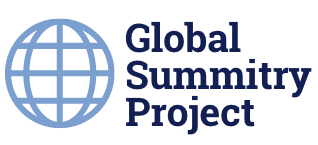For those for whom international affairs are important to their lives, the Biden trip to Cornwall, London, Brussels and Geneva is welcome indeed. For an American president with foreign policy experience to be re-engaging the United States with Europe and NATO is a relief after the previous four years. While it is good to be “back” in play, it is not clear that the playing field is the same.
Great power relations are not determined by military alliances alone. Interdependence creates mutual dependences which off-set leverage rather than creating it. Interests of all countries are now global, rather than being determined by regional neighbors alone. Countries prefer to keep their options open rather than bind themselves into fixed relations with a few. As a result, fluidity, maneuvering room, and policy space are sought; and complexity, pluralism and multi-layered relationships are frequent reality.
While restoring close relations with the UK is good and having constructive outcomes based on good political relations among G7 countries is superior to frictions, it is not clear that the G7 is the wave of the future. And, while reaching agreements on vaccines, inclusive recovery, taxing corporations and climate change are good, the truth is that for each of these agreements to be successful the G20 is the next step in global decision-making. Practically and without doubt advancing these agreements to the G20 is both the next and the most decisive step.
The attempt in Cornwall over the weekend to project the G7 as an “alliance of democracies” looks less promising than the optics of the Cornwall G7 summit suggests. No amount of contrivance, by adding Australia, India, Korea and South Africa to the guest list is going to hide the fact that a value-laden democratic alliance is no substitute for the realities of global order relations. The G20 contains major non-western countries that include autocracies as well as democracies. It is better to keep all the key players in the same tent rather than promote a divided world. The way to manage relations with China is not through surround-sound alliances of democracies but through more direct means of engagement with China itself within the context of international institutions and through the global order processes which include the G7 but also a large number of other significant countries in the G20.
The key “political dynamics” for today’s global order are:
- The diversity of the G20 is an asset since it is a driver of geopolitics.
- Pluralism in strategic interests is a top priority for most governments. Europe’s commitment to “strategic autonomy” drove the EU-China Comprehensive Investment Agreement (CAI) to the surprise of the United States.
- Plurilateral relations with China are more effective than bilateral or trilateral relations. Complexity creates maneuvering room and guardrails in negotiating forums
- Economic inter-penetration and interlinkage reduce strategic leverage rather than create it, meaning that cataclysmic shifts in policy frameworks are less likely.
- Balance of power diplomatic maneuvers are overpowered by systemic shifts caused by rising powers, making alliances less effective in the fluid, differentiated forcefields characteristic of specific strategic contested issues.
- The G7 is useful for engaging the United States with traditional trans-Atlantic “allies” and to validate democratic values as foundational institutional principles for governing that need strengthening within democracies as well as globally.
In the contemporary global order, the G20 is the only global forum currently available that is inclusive of global systemic diversity. It is the only forum capable of being a political platform for China-US relations to be addressed and adjudicated in the context of the interests and perspectives of other significant powers which have stakes in the outcomes and can facilitate the work by having influence on the process.
Plurilateral leadership within the G20, that is, leadership by several key countries for any given issue, along with rotation in and out of this fluid leadership process, has proven effective in successful G20 years in the past, and can provide more robust G20 leadership for the future if deliberately managed. Inclusion of China in plurilateral G20 leadership, as has occurred in the past (2009 and 2016) is a promising “political dynamic” for enabling convergence between systemically diverse powers, ameliorating confrontation and conflict.
Specific measures to strengthen the G20 could strengthen its potential to become a central arena for the evolution of China-West relations based on: professionalism in negotiating specific issues, mobilizing global actions on global issues, and managing strategic competition between systemically diverse powers.
Those specific actions could include:
- deliberately stimulating “plurilateral leadership” on specific issues to increase ambition;
- including China in G20 plurilateral leadership as a strategic move to ease geopolitical tensions;
- encouraging flexibility and fluidity through “shifting coalitions of consensus” driving different issues and replacing the “dynamic” of pre-arranged alliances and fixed blocs;
- selectively including international security issues and officials in G20 processes to directly address sensitive issues;
- empowering G20 ministers to lead on advancing G20 actions in their portfolios throughout the year, informing leaders but not waiting for them;
- strengthening and create international institutions to have capacities commensurate with global systemic challenges;
- charging senior political advisers and Sherpas of G20 countries to connect G20 agendas and leaders to public concerns and prioritize G20 communications for ordinary citizens; and
- assuring consistency and follow-through from year-to-year by creating a G20 secretariat to ensure that G20 commitments are fulfilled and plans implemented.
Photo Credit: PYMNTS.com
